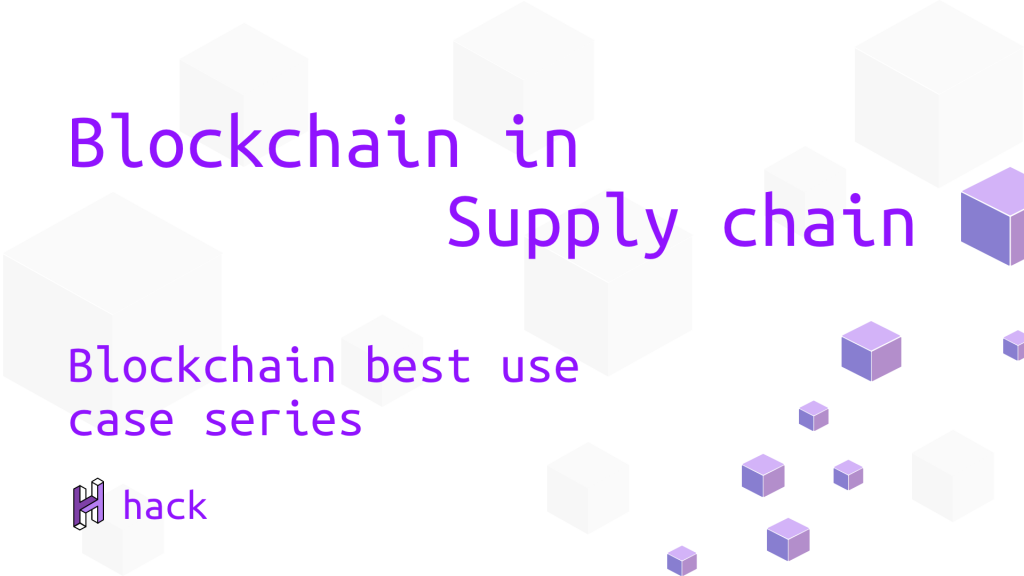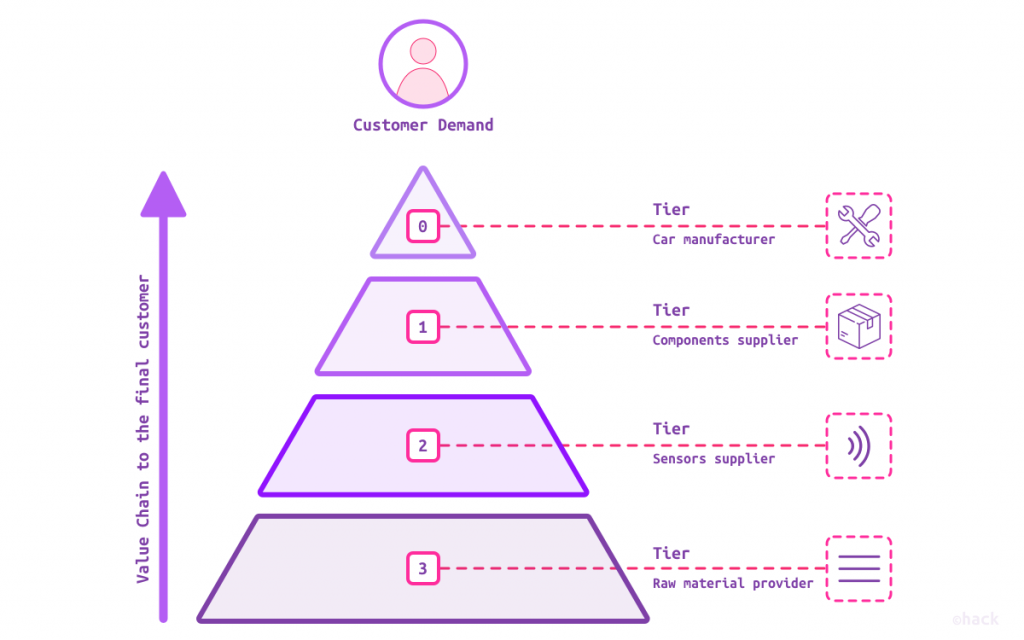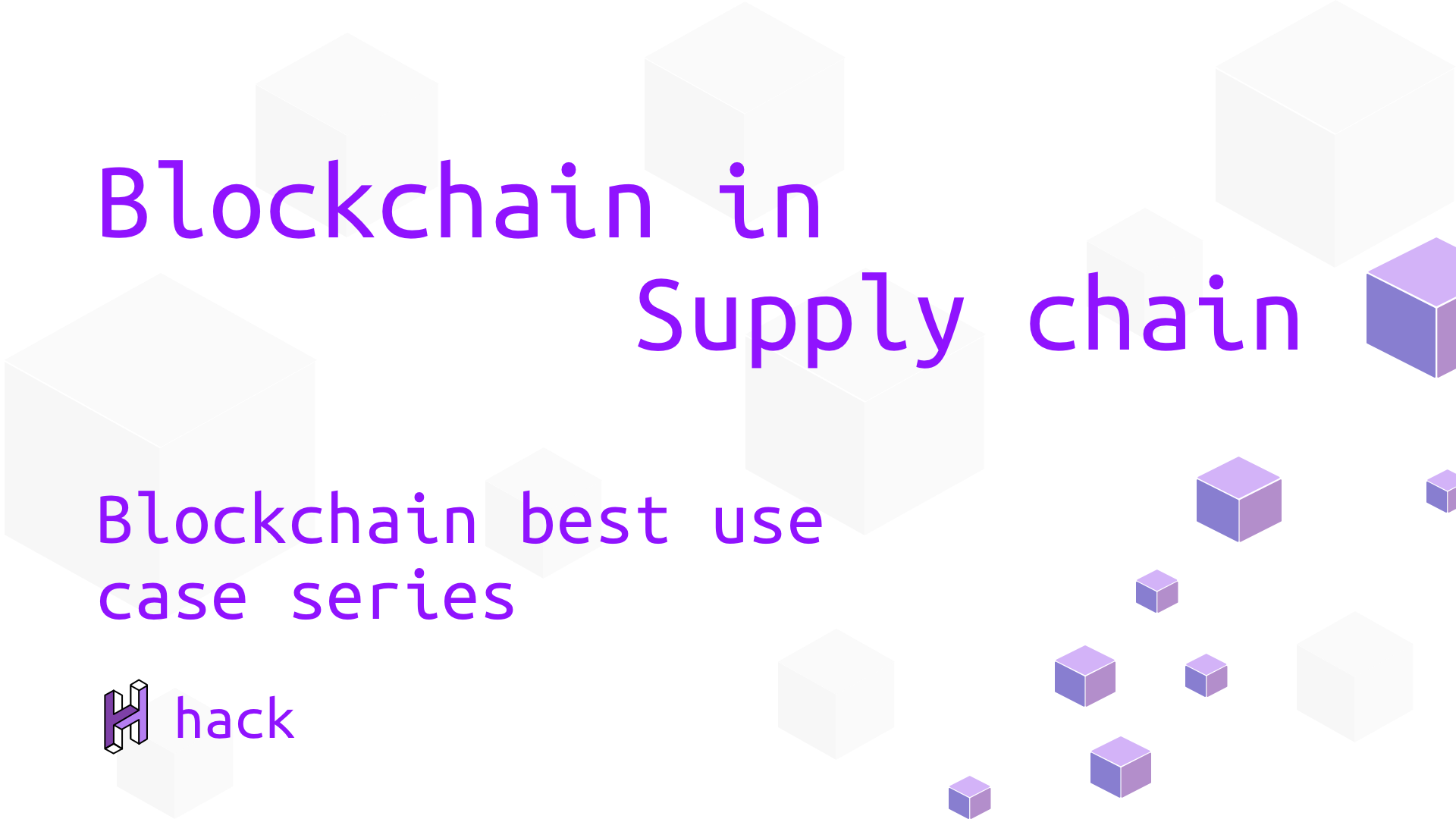
Blockchain’s Best Use Case Series
Inspired by a recent event, the Dronathon that we have co-organized with Premium CoWorking Space in Sofia we decided to shed some light on the role of blockchain in Supply Chain.
The Problem

Supply chain professionals have responded that visibility, inventory management, salles coordination among others are the biggest challanges that they are facing.
Nowadays supply chains have become global and extremely complex. We do business with companies and people who we don’t know. We have to rely on 3rd party auditors and assessors to make sure that the products, materials or ingredients we are buying are really what they are supposed to be. This is a very expensive process which is done normally in a non-digitalised way.
In the other hand, small companies are having a hard time to get into the market due to the lack of trust.
In addition to the above-mentioned problems( global scale, trust, and transparency), we are able to identify other key problems like ineffective risk management, lack of end-to-end visibility and obsolescence of technologies. All impacting negatively companies ROI.
Risk management
If the supply chain management tool is not having access to key data from the value chain the companies fail to make accurate risk predictions that lead to higher risk exposures.
Lack of end-to-end visibility
End-to-end visibility is key to ROI (return on investment). The inadequate supply chain visibility is leading to:
- Increased inventory costs resulting from inventory build-ups
- Increased freight costs from premium shipping
- Decreased productivity resulting from manually intensive processes
- Poor customer experience
- Loss of revenue from product shortages
- Delayed cash flow
Obsolescence of technologies
Using old, inefficient and closed (centralized) technologies is damaging companies ROI, partners trust and customers satisfaction.
The Solution
The good news is that there is a solution to all those problems and it is called blockchain.
Blockchain has the potential to become the universal supply chain operating system – increasing security, improving transparency and creating scalability.
Why is blockchain perfect solution to tackle the existing problems of the Supply Chain?
In another series, we have already discussed what is blockchain and how you can use the technology behind Bitcoin and Ethereum to help your business grow.
In short, blockchain is a digital ledger technology used to record transactions in chronological order. One can only add new transactions (not remove or edit), thus the ledger is immutable. Its underlying technology is offering us trust, transparency, and traceability.
In this post, we are going to look into its direct implementation in Supply Chain and learn why it matters.
Today’s supply chains are inherently complex- many lacking transparency due to lack of interoperability and inconsistent or unavailable data – areas where blockchain can counter these inefficiencies and add new value.
https://www.blockchain-supplychain.com/
The supply chain holds tremendous interest in the blockchain. The technology will be most useful in areas such as supplier payments, product traceability, and contract bids and execution.
Let us look at them one by one.
Supplier Payments
The area where blockchain is mostly used as of today is the area of secure, fast and transparent transactions. Compared to traditional bank wire transfer the cost and speed of blockchain transaction are hundred if not thousandfold faster and cheaper.
This is why blockchain transactions are a perfect way to pay your suppliers. Even on the other side of the world, they will get their money just in a few seconds (depending on the currency ). Fast settlements are crucial for suppliers giving them more access to capital, thus more opportunities to do business. If you are not the supplier but the business owner instead, you can benefit by saving from the cost of the transactions. That could be a real deal when dealing with large amounts of money. In addition to fast and cheap, transactions are can be used to for company’s accounting and auditing.
Blockchain can fundamentally transform businesses by eliminating inefficiencies, speeding up transactions and enabling innovative new business models,” said IBM Research China director Dr. Xiaowei Shen.
Product Traceability
Another key feature of the blockchain is the ability to track the products from the manufacturer/producer site to the point of sale, thus allowing the customer to check product origin and related details before buying it. This is an invaluable feature allowing each part of the value chain to track the product from raw material provider to the customer.
Blockchain’s ability to enable end-to-end visibility in Supply Chain can help companies grow their ROI. According to Gartner Research, the quantitative benefits of implementing end-to-end visibility are phenomenal:
- 20% in inventory savings
- 25% of increased regional forecast accuracy
- 98% of improved service level agreements
- 10% reduction of workforce
- 30% decrease in inventory stock
Let’s take the car industry as an example to picture the complexity of the value chain.

Another use case to showcase the importance of traceability is the food/pharma industry where both producer and customer need to make sure that the product is not a counterfeit.
Producers can protect their image and market by making sure that no counterfeit products have been infiltrated into their supply chain. Low-quality counterfeit products will not only reduce the company’s market share but can also lead to brand detriment when customers buy fake products with inferior quality.
For customers, quality can also mean health risks when we speak about alimentary products and pharma.
Implications of food safety and pharma
With growing global supply chains, food safety is a top concern with both consumers and regulators. The World Health Organization (WHO) estimates that 420,000 people die annually from food contamination, which affects one in 10 people worldwide. Children under age five are at the highest risk with 125,000 children dying every year from foodborne illness, according to WHO.
The World Health Organization pegged global fake drug sales at $75bn in 2010, a 90% increase over five years. The issue of counterfeit medicines has become increasingly pressing, both in terms of the economic cost of this global black market and the risk to human life that comes from taking counterfeit drugs that may not have the same active pharmaceutical ingredients or dosage levels.
Blockchain can eliminate those risks by allowing end users to track each item origin with the help of IoT sensors.
Helping the small
Beyond product integrity and anti-counterfeiting efforts, blockchain could also play a role in overcoming the financial challenges faced by smaller operators along the supply chain.
In China, for example, pharma retailers – which often have to wait two to three months to receive payment for delivered medicines – have experienced problems accessing financing without proper credit records and collateral, which the transparency of blockchain could provide.
Contract bid and execution
When the process of buying is automated via smart contract all parties can verify it. The smart contract enables trustless trade between absolute strangers, with the capability to introduce rules for trades that are at all stages transparent and self-enforcing.
Data and Governance
In conclusion, besides bringing more trust the blockchain systems are also a good source of data collection because of their transparency.
Additionally, their immutable nature is guaranteeing better data quality. Thus, allowing companies to better manage their supply chain and to optimize their processes. This in return is helping them stay ahead of the competition, win bigger market share and make more profits.
To get the next article about Blockchain and Business directly in your inbox subscribe to our newsletter.
If you have a great idea — but you don’t have the skill to build it – get in touch with us at hello@hack.bg.
Take a look at the full list of our services on our website.
We bring ideas to life.
Also published on Medium.



